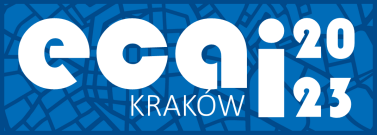Program
| Session | Slot | Topic | |
|---|---|---|---|
| 09:00-10:30 | Session I | ||
| 09:00-09:15 | Setting up & checking in | ||
| 09:15-09:25 | Welcome & Introduction | ||
| 09:25-09:30 | Quick round: collecting open questions, challenges and opportunities | ||
| 9:30-10:00 | Maaike de Boer, Jasper van der Waa, Sophie van Gent, Quirine Smit, Wouter Korteling, Robin van Stokkum and Mark Neerincx: A contextual Hybrid Intelligent System Design for Diabetes Lifestyle Management. | ||
| 10:00-10:30 | Haonan Zhao and Fausto Giunchiglia: Scheduling Real-Time Acquisition of Context Information. | ||
| 10:30-11:00 | Coffee Break | ||
| 11:00-12:30 | Session II | ||
| 11:00-11:30 | Jörg Cassens, Max-Leonard Plack, Rebekah Wegener: Learning to Land: Counterfactual Explanations in a Computer Game. | ||
| 11:30-11:35 | Quick round: collecting open questions, challenges and opportunities | ||
| 11:35-12:00 | Discussion: Applications of Contextual Modelling | ||
| 12:00-12:30 | Rebekah Wegener: The Semiotic Machine. | ||
| 12:30-13:30 | Lunch Break | ||
| 13:30-15:00 | Session III | ||
| 13:30-14:00 | Victor Milewski, Maria Mihaela Trusca and Marie-Francine Moens: What Can We Learn from the Structures Found in Visual and Language Data and their Correlations? | ||
| 14:00-14:30 | Jack Geraghty, Andrew Hines and Fatemeh Golpayegani: Understanding the Relevancy of Modality Information in Multimodal Machine Learning. | ||
| 14:30-14:35 | Quick round: collecting open questions, challenges and opportunities | ||
| 14:35-15:00 | Discussion: Multimodality and Context | ||
| 15:00-15:30 | Coffee Break | ||
| 15:30-17:30 | Session IV | ||
| 15:30-16:00 | Saeedeh Ghanadbashi, Akram Zarchini and Fatemeh Golpayegani: Ontology-based Adaptive Reward Functions. | ||
| 16:00-16:30 | Paulina Tomaszewska, Mateusz Sperkowski and Przemysław Biecek: Does context matter in digital pathology? | ||
| 16:30-16:50 | Discussion: Challenges and Opportunities | ||
| 16:50-17:00 | Wrapping up. | ||
The workshop will have two main types of interaction.
- Short paper presentations will provide an opportunity for all participants to introduce their work in a succinct and engaging manner. These sessions will serve as a forum for attendees to learn about the latest research in the field, while providing presenters with an opportunity to receive feedback and suggestions from their peers.
- The workshop also includes open, guided discussions summarizing the key takeaways and lessons learned throughout the day. Attendees will have the opportunity to share their insights and perspectives on the topics discussed, and to suggest areas for further research and exploration.
Last modified: Thursday, 2025-05-22 22:59 UTC.
Pages
Dates
- 2023-05-26:
Submissions open - 2023-07-14:
Regular paper due 2023-08-082023-08-10:
Regular paper notification- 2023-08-25:
Late & breaking paper due - 2023-09-19:
Late & breaking paper notification - 2023-09-28:
Camera-ready due - 2023-09-30:
Workshop
Deadlines Anywhere on Earth
External
Previously
- MRC 2022 @IJCAI-ECAI
- MRC 2021 @IJCAI
- MRC 2020 @ECAI
- MRC 2018 @FAIM
- MRC 2017 @IJCAI
- MRC 2016 @ECAI
- MRC 2011 @CONTEXT
- MRC 2010 @ECAI
- MRC 2008 @HCP
- MRC 2007 @CONTEXT
Contact
Jörg Cassens
University of Hildesheim
DE-31141 Hildesheim
mrc2023@kriwi.de





